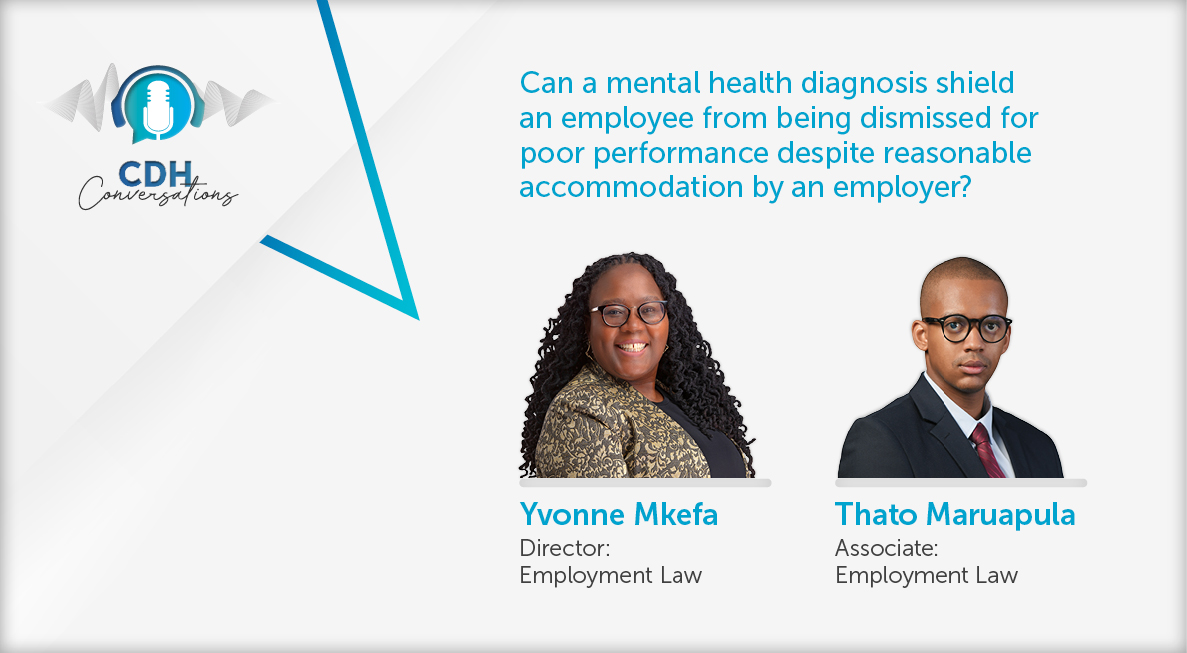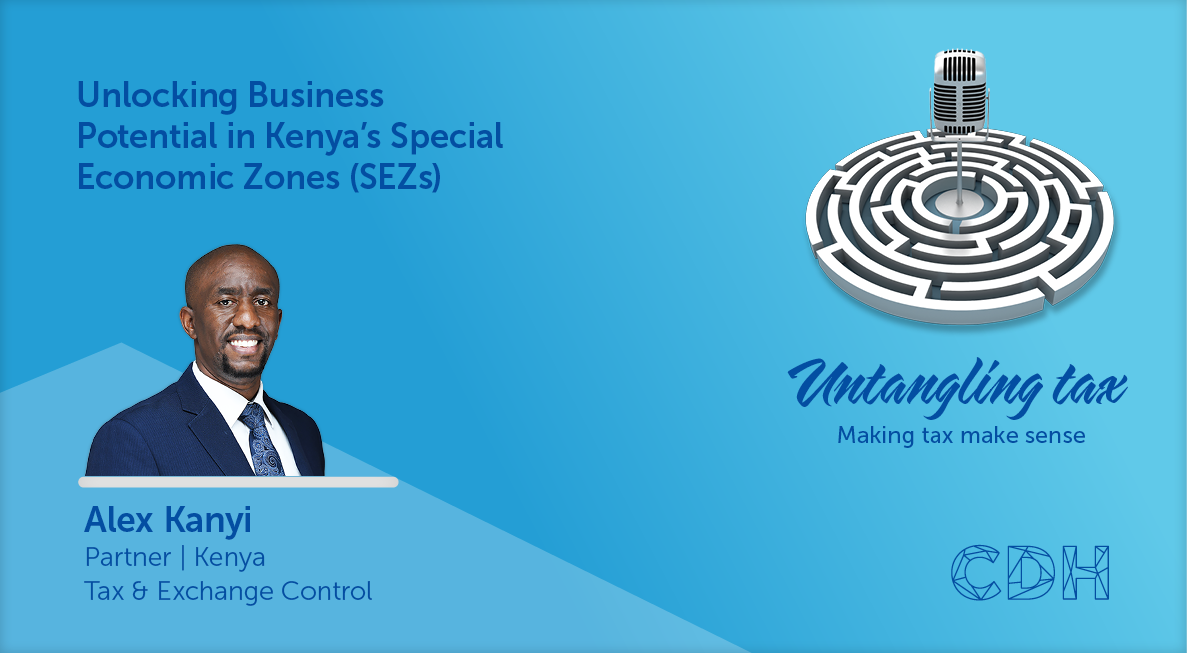Trusts and non-resident beneficiaries: 2023 TLAB proposal a step too far?
At a glance
- In our 2023 Special Edition Budget Speech Alert, we discussed a proposal in the 2023 Budget that would amend section 25B of the Income Tax Act 58 of 1962 (ITA) and limit the application of the conduit-pipe principle.
- The far-reaching impact of this proposal lies in the fact that if the proposal is implemented, the tax rate applicable to the same amount vested in resident and non-resident beneficiaries will differ substantially.
- National Treasury has previously indicated its agreement (at least implicitly) with the principle that irrational differentiation in tax legislation should not take place.
In our 2023 Special Edition Budget Speech Alert, we discussed a proposal in the 2023 Budget that would amend section 25B of the Income Tax Act 58 of 1962 (ITA) and limit the application of the conduit-pipe principle. We noted at the time that the potential impact of this proposal could be very far-reaching. This proposal has been included in the 2023 draft Taxation Laws Amendment Bill (Draft TLAB) that was published on 31 July 2023 for comment.
Background
In the Explanatory Memorandum to the 2023 Draft TLAB (EM), it is noted that government is concerned about the differences between the rules covering the normal tax treatment of income attributed to trust beneficiaries in section 25B of the ITA and the rules regarding the tax treatment of capital gains in relation to beneficiaries in terms of paragraph 80 of the Eighth Schedule to the ITA. Whereas SARS’ view is that the effect of paragraph 80 is that a capital gain vested in a non-resident beneficiary will be taxed in the hands of the trust at the effective rate of 36%, section 25B read with section 7, makes it possible for an income amount to be vested in the hands of the beneficiaries, including non-resident beneficiaries. While not stated in the EM, this means that income amounts (other than capital gains) vested in non-resident beneficiaries are currently taxed according to the normal marginal income tax tables and not automatically at the rate of 45%.
Reason for change and proposal
With this background in mind, the EM states that it is proposed that section 25B be amended to align it with paragraph 80 of the Eighth Schedule to the ITA by limiting the flow through (conduit-pipe) principle only to resident beneficiaries.
It is useful to quote the entire rationale for the proposed change as it appears in the EM:
“Section 25B of the Act does not have a limitation on who the beneficiaries of a South African trust may be; they could be residents or non-residents. The flow through of amounts by South African trusts to non-residents places SARS in a difficult position to collect income tax from those beneficiaries as they may not be taxed on foreign sourced amounts, tax recovery actions may be difficult and in the case of non-resident trusts that are beneficiaries, SARS may not have information on the persons in whom the foreign trusts vest the income.”
In addition, it is proposed that the amendment apply retrospectively from 31 July 2023.
Comment
As we explained in our 2023 Budget Alert, the far-reaching impact of this proposal lies in the fact that if the proposal is implemented, the tax rate applicable to the same amount vested in resident and non-resident beneficiaries will differ substantially. As it stands, SARS holds the view that a capital gain vested in a non-resident beneficiary will be subject to tax at the effective rate of 36%. If the same capital gain is vested in a resident beneficiary, it would be taxed at an effective rate of no more than 18%.
If section 25B is also amended, all income, including rental income and interest, vested in a non-resident beneficiary will be taxed at the rate of 45% in the hands of the trust, whereas the marginal income tax tables will apply if the amount is vested in a resident beneficiary, where the rate of 45% only applies to the portion of the resident beneficiary’s taxable income above R1,817 million. If the amendment proceeds as proposed, the only amounts that will be treated the same in the hands of resident and non-resident beneficiaries, will be dividends received from a South African resident company. This is because the company declaring the dividend would have paid dividends withholding tax to SARS on the dividends paid to the trust and there would be no additional tax when the dividend is vested in a resident or non-resident beneficiary.
One of the issues with the proposal is that it potentially irrationally differentiates between non-resident trust beneficiaries and resident trust beneficiaries by taxing them differently on the same amount. National Treasury has previously indicated its agreement (at least implicitly) with the principle that irrational differentiation in tax legislation should not take place. Furthermore, it is arguable that part of the reason for the proposal – that SARS is placed in a difficult position to collect income tax from non-resident beneficiaries – is not accurately addressed through the proposal as it merely means that the income is taxed at a far higher amount if vested in a non-resident beneficiary. This is particularly unfair in the cases of trusts with only non-resident beneficiaries and where the beneficiaries became non-resident, through none of the trust’s doing.
It remains to be seen whether the proposal is implemented, pursuant to workshops held by National Treasury on the 2023 Draft TLAB where the public will also receive an opportunity to make submissions.
The information and material published on this website is provided for general purposes only and does not constitute legal advice. We make every effort to ensure that the content is updated regularly and to offer the most current and accurate information. Please consult one of our lawyers on any specific legal problem or matter. We accept no responsibility for any loss or damage, whether direct or consequential, which may arise from reliance on the information contained in these pages. Please refer to our full terms and conditions. Copyright © 2026 Cliffe Dekker Hofmeyr. All rights reserved. For permission to reproduce an article or publication, please contact us cliffedekkerhofmeyr@cdhlegal.com.
Subscribe
We support our clients’ strategic and operational needs by offering innovative, integrated and high quality thought leadership. To stay up to date on the latest legal developments that may potentially impact your business, subscribe to our alerts, seminar and webinar invitations.
Subscribe




